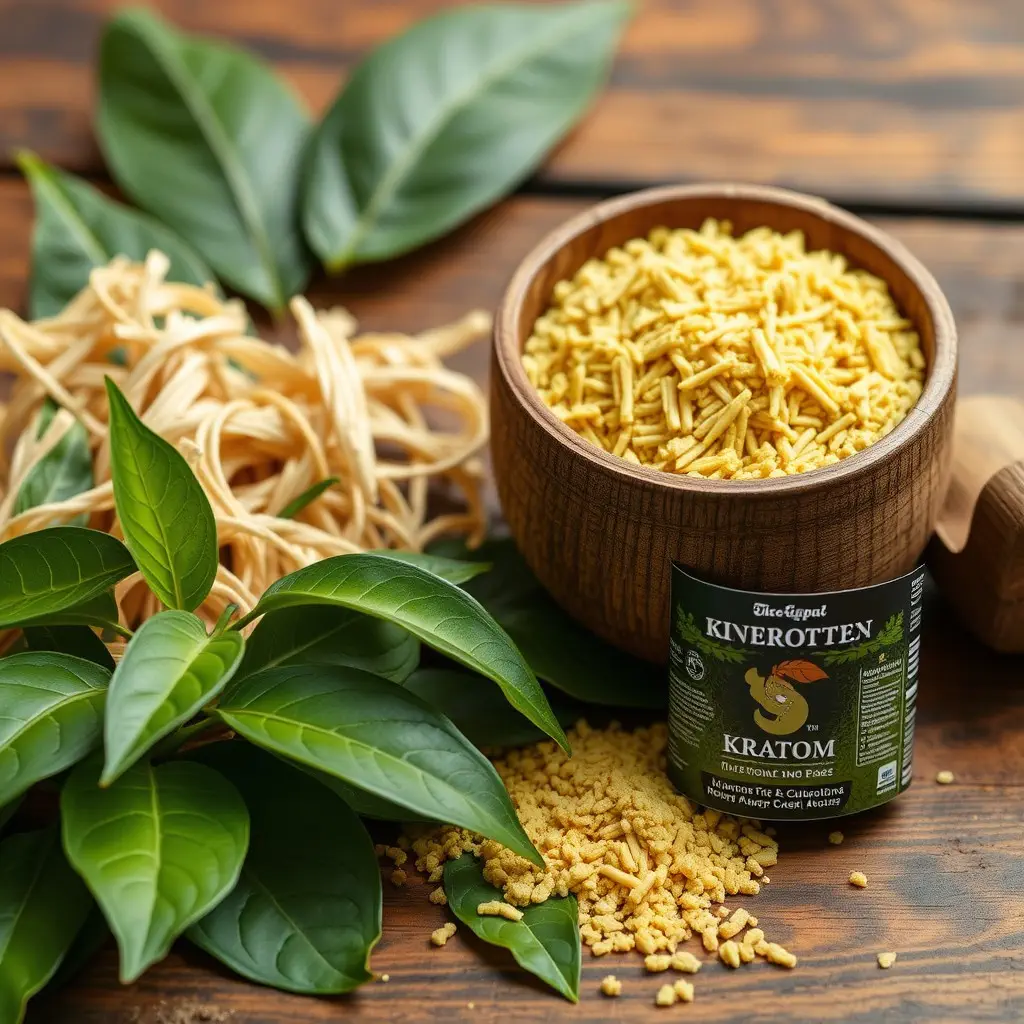Green Vein Kratom Extract is a natural substance from the Mitragyna speciosa tree that contains unique alkaloids associated with mood enhancement, energy boost, and well-being. It interacts with opioid receptors and is known for its balanced effects of stimulation and relaxation. Users should approach it responsibly, considering personal sensitivity and the extract's potency. The legal status of Kratom and its detection in drug tests, particularly within military settings, are subjects of importance due to its potential impact on soldiers' performance and the implications for those undergoing military drug testing. While Kratom is not explicitly tested for in standard Army drug screens, its chemical composition can sometimes lead to false positives in opiate tests, prompting additional scrutiny. The Army is actively assessing the situation to establish protocols that balance the therapeutic benefits against the need for operational readiness, with a particular focus on the implications of Kratom use within its ranks. Those interested in the military's stance on Kratom, specifically "does the army test for kratom," should be aware of the evolving nature of this issue and seek up-to-date information from authoritative sources.
Green Vein Kratom Extract has garnered attention in both alternative wellness circles and historical accounts of military practices. This article delves into its potency, historical role, and contemporary implications, particularly within the armed forces. As we explore the nuances of this botanical substance, a key focus will be on the legalities surrounding its use, including whether the army conducts tests for Kratom presence—a pertinent question given its alkaloid profile and the stringent testing protocols in military settings. Join us as we navigate these complex issues, offering clarity and insight into the world of Green Vein Kratom Extract.
- Unraveling the Potency of Green Vein Kratom Extract: A Comprehensive Guide
- The Role of Kratom in Historical and Contemporary Military Practices: A Closer Look
- Navigating Legalities and Testing: Does the Army Test for Kratom Use?
Unraveling the Potency of Green Vein Kratom Extract: A Comprehensive Guide

Green Vein Kratom Extract, derived from the leaves of Mitragyna speciosa, is a botanical product that has gained attention for its diverse alkaloid profile and potential effects. The green vein variety, specifically, is known for its balanced alkaloid content, which may contribute to a modulated experience compared to its red or white counterparts. This guide aims to unravel the potency of Green Vein Kratom Extract, providing clarity on its characteristics and usage.
The alkaloids present in Green Vein Kratom, such as Mitragynine and 7-Hydroxymitragynine, are thought to interact with the body’s opioid receptors, which may influence well-being, mood, and energy levels. Users often report a blend of energizing and calming effects, making it a popular choice for those seeking a balanced experience. It’s important to approach the consumption of Kratom extracts with caution and understanding, as individual sensitivities and the purity of the extract can greatly influence its potency. Additionally, discussions around the presence of Kratom in military drug testing, as per “does the army test for kratom,” are ongoing, with potential implications for those in military service considering its use. Users should be aware of the legal status of Kratom in their jurisdiction and consider the potential consequences of positive drug screenings. This guide serves as a resource to navigate the complexities surrounding Green Vein Kratom Extract’s potency and effects, ensuring users are well-informed about this botanical substance.
The Role of Kratom in Historical and Contemporary Military Practices: A Closer Look

Kratom, a tropical deciduous tree native to Southeast Asia, has a rich history entwined with military use, particularly in regions where it naturally grows. Traditionally, local laborers and soldiers have used kratom leaves for their stimulating effects when fatigue was a concern, as the alkaloids within the leaves, such as mitragynine and 7-hydroxymitragynine, can provide a boost in energy and endurance. Historically, these properties were recognized by military forces in countries like Thailand, where kratom was employed to enhance soldiers’ performance during operations. The use of kratom in this context was not limited to combat situations; it also played a role in the recovery process for soldiers recovering from injuries or illnesses due to its analgesic and anti-inflammatory qualities.
In contemporary times, the conversation around kratom’s role in military practices has evolved. The substance is under scrutiny by various branches of the military due to its potential impact on soldier well-being and the challenges it may pose in terms of drug testing. Does the army test for kratom? This question has become increasingly relevant as kratom is not a controlled substance at the federal level in the United States, but it does fall under the DEA’s list of drugs and chemicals of concern. Military personnel must navigate these regulations carefully, as positive tests for its presence could lead to consequences under the military’s drug policies. The challenge lies in balancing the benefits of kratom’s therapeutic properties with the need for discipline and clear-headedness that is paramount in operational readiness. As a result, the military continues to study and monitor kratom’s effects on its personnel to determine its role within the armed forces, ensuring the health and safety of soldiers remain a top priority.
Navigating Legalities and Testing: Does the Army Test for Kratom Use?

When considering the implications of Green Vein Kratom Extract within regulated environments such as the military, understanding the legal landscape and testing protocols is paramount. The legal status of Kratom varies across different jurisdictions, with some states and countries banning its use, while others permit it under certain conditions. For service members in the U.S. Army, the legality of Kratom use is a pressing concern due to the potential impact on their health and performance. The Army’s stance on Kratom involves a careful consideration of its effects, which include both stimulant and opioid-like properties, as per the Dietary Supplement Health and Education Act (DSHEA).
In terms of testing, the U.S. Army conducts regular drug tests to maintain operational readiness and ensure the health and safety of all personnel. The standard urine screening typically checks for a range of substances, including controlled narcotics, amphetamines, cocaine, PCP, and opiates. While Kratom is not explicitly included in these standard screens, its chemical compounds can sometimes yield false positives for opiates due to their similar molecular structures. Therefore, if Kratom use is suspected, additional testing may be required to confirm its presence. It’s important for Army personnel to be aware of the substances they consume and the potential implications on drug tests. As such, the Army’s approach to Kratom remains cautious, with ongoing assessments to determine the best course of action regarding its regulation and testing.
Green Vein Kratom Extract has garnered attention for its varied effects and potential uses. This article has delved into its potency, historical significance in military contexts, and the complex legal landscape surrounding its use, particularly within the armed forces. A key finding is that while the traditional uses of Kratom have been part of military practice for centuries, modern regulations demand stringent testing to ensure compliance. The question of whether the Army tests for Kratom use remains pertinent, with a clear need for clear policies and rigorous testing protocols. As the understanding of Kratom continues to evolve, it is crucial for both the military and civilian sectors to stay informed on its implications, ensuring the well-being and readiness of personnel while adhering to legal standards.






